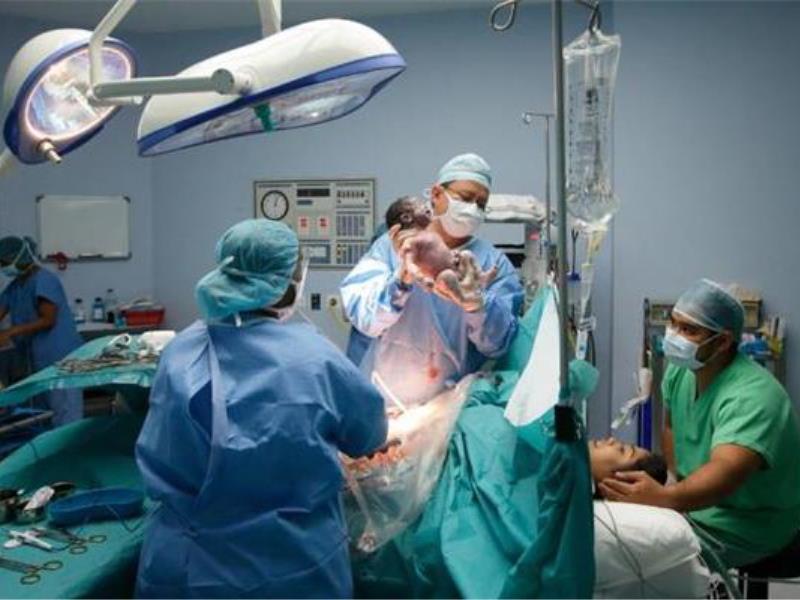Every year about 300,000 children are born in the country through surgery, though they could have been delivered normally.
Out of 3.48 million children born annually, surgery is applied for the birth of some 800,000 children a year, according to official statistics.
Also, public healthcare experts say, antibiotics are needlessly being prescribed and patients are being admitted to hospitals in cases where admission is not required. The patients are being asked to take tests that are unnecessary.
However, there is no institution in the country to monitor this, the experts regret.
The UK-based medical journal Lancet says such unnecessary tests harm the physical and mental wellbeing of a person. It not only increases the patients’ medical expenses, but also causes misuse of money injected in the health sector. The journal on 8 June published four articles on the misuse of medical services.
The articles suggest there are no palpable specifics on such manipulation of medical services. There have been some research in developing countries on this, and studies show this exists in low income countries as well.
Unnecessary surgery during childbirth
As per the World Health Organisation (WHO), 10-15 per cent deliveries in a country may be complicated and might need surgeries.
A survey in 2004 showed that around 5 per cent babies born needed surgeries. In 2007, the percentage increased to 9, and in 2011 it stood at 17 per cent.
Still, the government has turned a blind eye to the problem and in 2014 around 23 per cent babies were born through surgery.
Three years later, in 2017, the situation has probably worsened further, the experts suspect.
As many as 800,000 children are being born every year through surgery, Ishtiaq Mannan, the deputy country director of Save the Children, who has worked for over one and half decades in the safe motherhood and neonatal health sector, told Prothom Alo.
Among them, he pointed out, around 330,000 children did not need surgeries.
Ishtiaq said it is happening because of lack of a standard practice. “Regular deliveries take a little more time, which many doctors do not like. Secondly, surgeries mean more fees to for the hospital. As a result, doctors are under pressure to perform surgeries,” he said. Many educated and well-to-do women opt for surgery themselves, he added.
Unnecessary antibiotics
A recent WHO article said Bangladeshi children less than two years of age are on an average given five courses of antibiotics (a course may be of 1-7 days depending on the case) every year.
Mustafa Mahfuz, a researcher working for International Centre for Diarrhoeal Disease Research, Bangladesh (ICDDR,B), said the survey was conducted on 200 children.
However, in many cases, the children do not complete the antibiotic courses and on many occasions it cannot be known who had prescribed the course.
Professor Md Sayeedur Rahman of Bangabandhu Sheikh Mujib Medical University (BSMMU) said in many cases antibiotic courses are being prescribed unnecessarily.
He said many of these children suffer from chronic diseases when they grow up.
“Not only among children, patients of all ages are taking antibiotics unnecessarily — a practice which is harming their immunity in the long run,” he added.
According to Lancet, use of antibiotics has increased by 36 per cent worldwide between 2000 and 2010. Besides, many countries have reported that the tendency to admit patients to hospitals needlessly is on the rise.
The journal stressed the need for raising awareness to this end among physicians, politicians and policymakers.
Source: Prothom Alo

